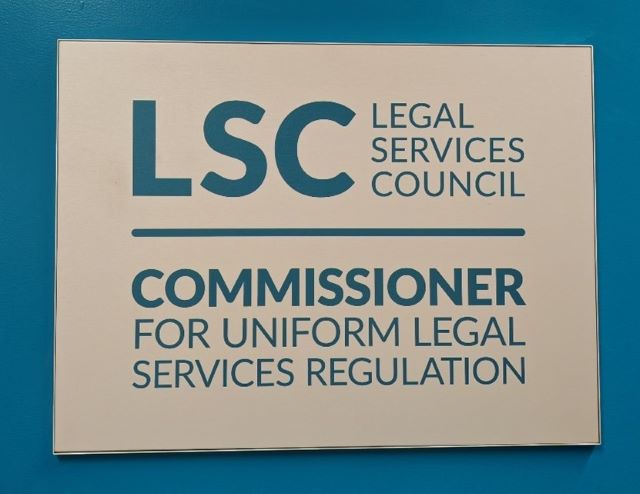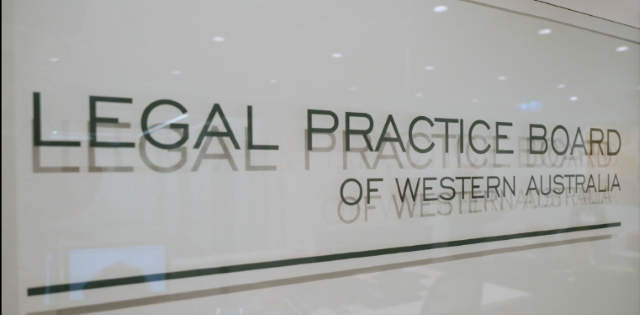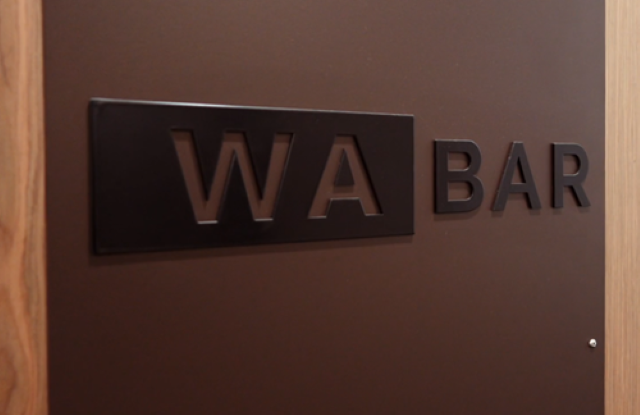The Legal Profession Uniform Law entered into force in Western Australia on 1 July 2022, bringing Western Australian lawyers under the same regulatory framework as Victoria and New South Wales.
Two years down the track, the Attorney General of Western Australia, the Hon John Quigley MLA, has shared his reflections on the Uniform Law, its benefits and implementation as part of a video package focusing on the introduction of the Uniform Law scheme in Western Australia.
The Legal Practice Board, the Law Society of Western Australia and the Western Australian Bar Association also joined the Attorney General in sharing their perspectives.
Key benefits identified include:
In addition to providing valuable feedback on the implementation of the Uniform Law, these videos demonstrate Western Australia’s successful transition into the scheme, which the Council hopes will also be of interest to non-participating jurisdictions.
The videos are available below.

Sitesh Bhojani, Chair, Legal Services Council:
The decision by Western Australia to adopt the Uniform Law was a tremendous milestone in terms of the expansion of the Uniform Law scheme. It marked a significant step towards the goal of Australia having a national legal profession operating under a uniform regulatory framework.
Heather Moore, CEO, Legal Services Council and Commissioner for Uniform Legal Services Regulation:
The leadership and vision of the Attorney General of Western Australia were critical in reaching this milestone. So, too, was the work of the Legal Practice Board to prepare for the transition, and the support that the legal profession received from the Law Society and the Bar Association.
Sitesh Bhojani, Chair, Legal Services Council:
Two years down the track, we are grateful to have the opportunity to hear from the Attorney, the Board, the Law Society, and the Bar Association, about their experiences in joining the Uniform Law scheme.
Heather Moore, CEO, Legal Services Council and Commissioner for Uniform Legal Services Regulation:
We're aware that this step by Western Australia has been keenly watched by other jurisdictions. We hope that the success of the implementation in Western Australia and the benefits which have been realised, will be a helpful blueprint for the future.
John Quigley, Attorney General:
There’s 104,000 lawyers in Australia. Before we joined, 68% of the profession were covered by the Uniform Law, but from Victoria and New South Wales. It was apparent that if we joined, we got our knees under the table. We were part of the decision-makers of the Uniform Law and of the scheme. And so we have been invited into the scheme and joined it on the understanding that we'd be full participants in all decisions, even though there are only 8,000 lawyers in Western Australia. So there was 68% of the profession in the scheme before. That’s New South Wales and Victoria. And with us joining, it’s risen to 75% of the legal profession in Australia. I'm hoping that that has achieved critical mass, and other states can look at Western Australia on the other side of the continent, joining without trepidation or fear.
Gary Mack, Senior Vice President, Law Society of Western Australia:
There was great support from the members in joining the scheme. Rebecca Lee, the then President at the time, said that a seamless, uniform, regulatory regime would not only benefit legal consumers, but also benefit practitioners. So, we were very happy to join the scheme.
And of course, the legislation was passed by Parliament in March 2022. The Minister made an announcement on 1st of June that it’ll come into operation in Western Australia on the 1st July 2022, and it has. And it’s been very seamless. The profession has adopted it very, very well.
Tim Hammond SC, Vice President, Western Australian Bar Association:
There’s no doubt that change of any type, and certainly change around a regulatory environment, can sometimes cause maybe some mild anxiety or unease as to how much will change and how much will stay the same. And look, I have to say, from the perspective of the Association, we’ve been really pleased with how smooth the transition has been.
John Quigley, Attorney General of Western Australia:
There is capacity within the law to take account of local practices. I have been told by those at the highest levels of practice in Western Australia, the introduction of the Uniform Law has been seamless. And I really urge other states to look at this. Let’s get together and have one uniform profession throughout our nation.
Libby Fulham, Executive Director, Legal Practice Board:
I think it’s important to understand that being part of the Uniform Law has not inhibited the Board. It’s developed its own structure. The Uniform Law doesn’t require us to structure ourselves in a particular way. We’ve been able to maintain the range and the remit of the legal services that we regulate. And we’ve maintained our structure the way we had it prior to being in the Uniform Law. Just coming into the Uniform Law doesn’t mean we need to change significantly.
Tim Hammond SC, Vice President, Western Australian Bar Association:
From an Association's perspective and in terms of feedback from our members, there are a number of benefits which really reflect the fact that we are all practising in a relatively modern era that is also very fast-paced. The first benefit for our members is it does provide an easier transition across jurisdictions.
What I’ve also seen that I think is a very helpful thing in relation to the Uniform Law and this notion of change, is the fact that it’s been very important for members to ensure that we retain the familiarity and the effectiveness of our local jurisdictions. So the Legal Practice Board maintaining its own independence, but at the same time coming in under the umbrella of the Uniform Law, has been very useful because it does mean that we get the continuity of a local regulator at the same time as the benefits of our national support.
John Syminton, Chair, Legal Practice Board:
The main benefit that I see is the disciplinary process of dealing with consumer complaints. Otherwise, the operations of the Board are very similar as they were previously. There are no major changes. The complaint process now can be dealt with on a consumer basis and it’s far less rigid than it was under the previous Act.
Russell Daily, Legal Services and Complaints Officer and Director, Investigations and Review, Legal Practice Board:
Under the Uniform Law, there’s a new species of complaint which deals with consumer concerns, which is actually the bulk of the concerns that we get in with complaints. And that allows us in what is called an efficient, effective, targeted, and proportionate way to actually deal with those complaints, looking at what the complainant actually wants, which is usually some simple remedy that we can hopefully try and deliver in a very quick and informal way, dealing with it in that proportional method.
John Quigley, Attorney General of Western Australia:
The other really important part is for country and regional practitioners. Now, these practitioners are providing a fantastic service in Western Australia in sparsely populated areas. When I say sparsely populated, Kununurra, Broome, Port Hedland. Their clients often have questions to raise, but now they’re raised as consumer issues, rather than a practitioner in Kununurra having a heart attack when he gets a letter from the Board saying he’s on the way to a disciplinary proceeding or an inquiry. Often, it can be resolved as a consumer matter. This is of huge benefit to the consumers of legal services who live remotely.
Gary Mack, Senior Vice President, Law Society of Western Australia:
Overall, there’s been that we anticipated have been great benefits, and those benefits have been realised. We’ve had no complaints at all in terms of the implementation of the Uniform Law and the associated regulations, and this is both within our large firms, small firms, and our rural and remote firms. This has gone very smoothly, and I think overall the profession is very content with what has happened and have actually moved on and adopted everything into their practice that they’re required to do.
Tim Hammond SC, Vice President, Western Australian Bar Association:
Like most of these things, the key to a smooth transition is communication. Communication in terms of the Uniform Law being rolled out across the state, and communication from us as an Association to our members.
Gary Mack, Senior Vice President, Law Society of Western Australia:
An additional reason why the Uniform Law adoption in WA has been so successful is that the Legal Services Council has been very supportive of Western Australia's transition to the system. We’ve worked cooperatively together, and that has greatly assisted the adoption of the process in this state.
Libby Fulham, Executive Director, Legal Practice Board:
It’s always very helpful that we’ve got just a phone call away, other jurisdictions who are dealing with the same things that we’re dealing with on a day-to-day basis, and the Legal Services Council itself, in coming to resolution or an interpretation on a particular regulatory function that we’re fulfilling.
Tim Hammond SC, Vice President, Western Australian Bar Association:
In our view, the work required in order to ensure that we become part of the Uniform Law has certainly paid off when it comes to the issues of transition to jurisdictions and the fact that we've retained our own sense of identity. Sure, there was hard work involved, but from the Association's point of view, our feedback has been that it’s been worth it.
John Quigley, Attorney General of Western Australia:
I’m retiring from Parliament in March, not retiring from life, just from Parliament. So it’s not a political point I make. I really do urge all the Attorneys who are not in the scheme to have a little think about joining us. For the benefit of the profession and for the benefit of the consumers.

Sitesh Bhojani, Chair:
Hello, I’m Sitesh Bhojani, Chair of the Legal Services Council.
Heather Moore, CEO/Commissioner:
And I’m Heather Moore, CEO of the Council and Commissioner for Uniform Legal Services Regulation.
Sitesh Bhojani, Chair:
Heather and I are delighted to be here in Perth in Western Australia. Today, we are on the lands of the Whadjuk Noongar people, and we acknowledge them as the Traditional Owners of these beautiful lands and pay our respects to Elders past, present, and emerging.
Heather Moore, CEO/Commissioner:
The Legal Services Council and the Commissioner oversee the Legal Profession Uniform Law – the regulatory scheme for lawyers and law practices in New South Wales, Victoria, and Western Australia.
Sitesh Bhojani, Chair:
The decision by Western Australia to adopt the Uniform Law was a tremendous milestone in terms of the expansion of the Uniform Law scheme. It marked a significant step towards the goal of Australia having a national legal profession, operating under a uniform regulatory framework.
Heather Moore, CEO/Commissioner:
The leadership and vision of the Attorney General of Western Australia were critical in reaching this milestone. So too was the work of the Legal Practice Board to prepare for the transition and the support that the legal profession received from the Law Society and the Bar Association.
Sitesh Bhojani, Chair:
The Attorney General spoke about the aims of the Uniform Law scheme when he introduced the legislation to Parliament. He talked about standardising regulatory obligations while maintaining local performance of regulatory functions.
Heather Moore, CEO/Commissioner:
He talked about preserving the principle of co-regulation by the legal profession and introducing new informal ways of resolving consumer disputes, and he talked about seamless practice across the Uniform Law jurisdictions for lawyers, and consistent protections, rights and remedies for consumers.
Sitesh Bhojani, Chair:
Two years down the track, we are grateful to have the opportunity to hear from the Attorney, the Board, the Law Society, and the Bar Association about their experiences in joining the Uniform Law scheme. They share any concerns they had and how they were addressed, and the benefits of the Uniform Law.
Heather Moore, CEO/Commissioner:
We are aware that this step by Western Australia has been keenly watched by other jurisdictions. We hope that the success of the implementation in Western Australia and the benefits which have been realised, will be a helpful blueprint for the future.
Sitesh Bhojani, Chair:
The Council will continue to engage with other Australian jurisdictions, with the aim of expanding the Uniform Law scheme. With Western Australia on board, it is our hope that other states and territories will join us, sooner rather than later.

John Quigley, Attorney General:
On coming to office in 2017, I was very aware that the former Chief Justice French, of the High Court, in his valedictory said, that it might have taken the engineers 102 years to get a standard gauge rail in Australia, but the lawyers hadn’t achieved yet, a standard law in Australia in terms of the legal profession.
And our Chief Justice at the time, Wayne Martin KC, also coming back from a Council of Chief Justices, urged me to consider this.
We’ve got 104,000 lawyers in Australia, and about 8,000 in Western Australia. And, I thought it was important that the profession start moving for a national uniformity.
There is a Standing Committee of Attorneys General, which oversight the Legal Services Council under the Uniform Law. And so when suggestions come up for amendments to the Rules under the law, or indeed an amendment to the law itself, we, the three Attorneys, confer and concur.
The law itself, and I want to say this for the other states, the law itself was originally passed by the Victorian Parliament, so it wasn’t too difficult for the Western Australian Parliament to pass adopting legislation as did New South Wales.
There’s 104,000 lawyers in Australia. Before we joined, 68% of the profession were covered by the Uniform Law, but from Victoria and New South Wales. It was apparent that if we joined, we got our knees under the table, we were part of the decision makers of the Uniform Law and of the scheme.
And so we have been invited into the scheme and joined it on the understanding that we’d be full participants in all decisions, even though there’s only 8,000 lawyers in Western Australia, so there was 68% of the profession in the scheme before, that’s New South Wales and Victoria, and with us joining, it’s risen to 75% of the legal profession in Australia. I'm hoping that that has achieved critical mass and other states can look at Western Australia on the other side of the continent joining without trepidation or fear.
Once I started reaching out to join the Council, they invited observers from Western Australia in so we could see how it was working. Any other state contemplating joining, I’m sure will be invited in as observer status whilst they’re contemplating joining. It was a very worthwhile experience and enabled us to proceed into the national legal profession, as I like to call it, with confidence.
There is no doubt that Western Australia has an equal voice in the scheme. When we went into the scheme, having learnt from the GST that the devil is in the detail, part of the negotiations going in were our equal voting rights with Victoria and New South Wales, even though we had a minority of practitioners.
The other really important part is for country and regional practitioners. Now these practitioners are providing a fantastic service in Western Australia in sparsely populated areas. When I say sparsely populated – Kununurra, Broome, Port Hedland.
Their clients often have questions to raise, but now they’re raised as consumer issues rather than a practitioner in Kununurra, having a heart attack when he gets a letter from the Board, saying he’s on the way to a disciplinary proceeding or an inquiry. Often it can be resolved as a consumer matter. This is of huge benefit to the consumers of legal services who live remotely.
For those in the regions, the Uniform Law has been a big boost. I mean to say people could argue "Oh, what’s it going to do for a lawyer in Kununurra?" Well, let me tell you. Firstly, their clients have got access to a consumer-based system. That’s the first thing. The second thing is for the legal practitioner, there’s early resolution of issues with their clients, very early resolution. And there’s a very important difference between the Uniform Law now, than its earlier iterations, and that is, instead of having a central body based on the east coast for a disciplinary body or an investigative body, each state has a delegated regulatory regime. Ours is the Legal Practice Board. There is capacity within the law to take account of local practices.
I have been told by those at the highest levels of practice in Western Australia, the introduction of the Uniform Law has been seamless. And I’d really urge other states to look at this. Let’s get together and have one uniform profession throughout our nation.
The time has come for heaven’s sake, it’s 2024. We shouldn’t be parochial. Lawyers are practicing across jurisdictions. It doesn’t make sense to have different rules per jurisdiction.
I’m retiring from Parliament in March, not retiring from life, just from Parliament. So it’s not a political point I make. I really do urge all the Attorneys who are not in the scheme, to have a little think about joining us for the benefit of the profession and for the benefit of the consumers.

John Syminton, Chair:
The role of the Legal Practice Board is to regulate the legal profession, and that is, deal with admission to practice and then discipline, and continuing professional development, including issue of practising certificates and indemnity insurance. So those are all regulatory matters, which are undertaken by the Board and through the Board’s committees.
Libby Fulham, Executive Director:
We’re the third state to be brought into the Uniform Law, there are two other glorious states before us. They worked with us and the Legal Services Council itself as well. They worked with us extensively throughout the process. I think it’s important to understand that being part of the Uniform Law has not inhibited the Board. It’s developed its own structure. The Uniform Law doesn’t require us to structure ourselves in a particular way. We’ve been able to maintain the range and the remit of the legal services that we regulate and we’ve maintained our structure the way we had it prior to being in the Uniform Law. Just coming into the Uniform Law doesn’t mean we need to change significantly.
John Syminton, Chair:
The main benefit that I see is the disciplinary process of dealing with consumer complaints. Otherwise, the operations of the Board are very similar as they were previously. There are no major changes. The complaint process now can be dealt with on a consumer basis and it’s far less rigid than it was under the previous Act.
Russell Daily, Legal Services and Complaints Officer and Director, Investigations and Review:
Well, it’s now been two years since the Uniform Law commenced in Western Australia and it’s actually been quite a big change from my perspective in the complaint space. Under the previous regime that operated here in Western Australia, complaints were pretty much classified as a one size fits all disciplinary process, where the inquiry was made into what had been alleged, and the lawyer was then scrutinised in quite some detail over quite some time, and then a disciplinary response was determined at the end of the day.
Under the Uniform Law, there’s a new species of complaint which deals with consumer concerns, which is actually the bulk of the concerns that we get in with complaints. And that allows us in what is called an efficient, effective, targeted and proportionate way to actually deal with those complaints, looking at what the complainant actually wants, which is usually some simple remedy that we can hopefully try and deliver in a very quick and informal way, dealing with it in that proportional method. And of course, at the same time, we still have a role in disciplining lawyers and that means making sure that they’re accountable and have high standards and that the profession’s not brought into disrepute.
Libby Fulham, Executive Director:
Well, the Uniform Law is clearly a different legislation to the one we had before. Make no mistakes, we’ve considered the Legal Profession Act to be a prescriptive, descriptive and rather punitive piece of legislation. It was kind of old and outdated. So bringing in the Uniform Law gave us much better opportunities for remedies, for matters that come to us. Primarily, I mean, we don’t just deal with legal practitioners who require a practising certificate. We also deal with consumers who come to us that want to complain or ask questions about the legal services that have been provided to them. So there’s a greater, greater flexibility in resolving those matters when they come to us from the consumer's perspective.
So it’s cleaner, faster, more mediation and conciliation. And it means that there’s a remedy for both the consumer and the legal practitioner, so they’re not drawn out through a lengthy disciplinary process that can be unnecessary. That’s a significant difference and benefit of the Uniform Law. It also affords us to have that harmony with the other jurisdictions in terms of if we’re looking at common issues around particular types of practitioners.
Russell Daily, Legal Services and Complaints Officer and Director, Investigations and Review:
We worked very closely with the other jurisdictions, Victoria and New South Wales, the different regulatory bodies there. The Legal Services Council as well. We did a lot of work with them. They’d been through the experience before, but we knew that the experience here in Western Australia was going to be different. And so we were able to do some work to prepare for the different pain points or the different changes that we saw might happen here in Perth.
Here at the Legal Practice Board, we did lots of work with the Law Society and the Bar Association as well and preparing as part of working group and presenting lots of continuing professional development sessions that were available to the profession to get them up to speed on what to expect with the changes that might happen with the Uniform Law being introduced in Western Australia.
Libby Fulham, Executive Director:
It’s always very helpful that we’ve got just a, just a phone call away, other jurisdictions who are dealing with the same things that we’re dealing with on a day-to-day basis and the Legal Services Council itself in coming to resolution or an interpretation on particular regulatory function that we’re fulfilling.

Gary Mack, Senior Vice President:
There was great support from the members in joining the scheme. Rebecca Lee, the then President at the time, said that a seamless, uniform, regulatory regime, would not only benefit legal consumers, but also benefit practitioners. So we were very happy to join the scheme. And of course, the legislation was passed by Parliament in March 2022. The Minister made an announcement on 1st June that it’ll come into operation in Western Australia on the 1st July 2022, and it has. And it’s been very seamless. The profession has adopted it very, very well. Having a seamless regulatory framework in which legal practitioners can practise in Australia to support our business sector.
So overall, there’s been that we anticipated have been great benefits and those benefits have been realised. Our members were very keen on a national framework right from the beginning in November 2009. The Law Society Council developed 13 points, which we thought were integral in developing a national legal regulatory framework.
In August 2016, we wrote to the Attorney General seeking that we would like to join a national scheme. And that was contingent upon us having a seat at the table of the Legal Services Council and also having a local regulatory body made up of members from the profession that was independent of government. We received those, and we’re very grateful to have those and we joined the scheme as a result.
Once a decision was made, the profession and Law Society got right behind it. We developed an extensive array of CPD materials. We developed a dedicated hub for members to go to get an in-depth access to information. We put an abundance of material out in our monthly magazine Brief. And also we worked together with Law Mutual, a professional indemnity insurer, to create various templates and for cost disclosure and also to have training regarding how to manage conduct issues should they arise.
We, because of this wholehearted approach, we’ve had no complaints at all in terms of the implementation of the Uniform Law and the associated regulations. And this is both within our large firms, small firms and our rural and remote firms. This has gone very smoothly and I think overall the profession is very content with what has happened and have actually moved on and adopted everything into their practice that they’re required to do.
An additional reason why the Uniform Law adoption in WA has been so successful, is that the Legal Services Council has been very supportive of Western Australia’s transition to the system. We’ve worked cooperatively together and harmoniously together, and that has greatly assisted the adoption of the process in this state.

Tim Hammond SC, Vice President:
We are largely a voluntary Association, and we provide services all across the Bar, and also to the broader profession generally by way of CPD services, various types of support and advocacy for our members, as well as managing professional indemnity insurance as well.
There’s no doubt that change of any type, and certainly change in a regulatory environment can sometimes cause maybe some mild anxiety or some unease as to how much will change and how much will stay the same. And look, I have to say from the perspective of the Association, we’ve been really pleased with how smooth the transition has been. I think again, it’s fair to say that a couple of things really worked in our favour in that regard. Firstly, unlike some change processes, the fact that this change process was relatively gradual really allowed members time to adjust to the extent that was required. Like most of these things, the key to a smooth transition is communication. Communication in terms of the Uniform Law being rolled out across the state and communication from us as an Association to our members.
And in terms of ongoing communications with our members, it was very important that members be kept informed often, which we would do regularly by way of email broadcasts out to members by putting the hyperlinks on our website and generally making sure that our very, very small but incredibly dedicated and hardworking staff were available at all times to advise members upon where to find information to assure themselves that the transition to the Uniform Law was going to be a smooth and steady one.
From an Association’s perspective and in terms of feedback from our members, there are a number of benefits which really reflect the fact that we are all practising in a relatively modern era that is also very fast-paced. The first benefit for our members is it does provide an easier transition across jurisdictions. Look, the reality is in today’s day and age, the need to ensure that the seamless transition across jurisdictions, and particularly to our east coast brethren, is made as smooth as it possibly can, and in our view, the Uniform Law assists that greatly.
Secondly, again, practising in today’s day and age is fast-paced, and the more it is that we can benefit from those who are doing this work and doing it well in a seamless and uniform way, on the east coast, the better it’s going to be for our members.
What I think we’ve seen from the Association’s point of view in relation to the upsides of the Uniform Law being implemented, firstly, in relation to communications, not only with our members, but it has allowed us to work very closely with our traditional partners in Western Australia, the Law Society of Western Australia and others.
What I’ve also seen that I think is a very helpful thing in relation to the Uniform Law and this notion of change, is the fact that it’s been very important for members to ensure that we retain the familiarity and the effectiveness of our local jurisdictions. So the Legal Practice Board maintaining its own independence, but at the same time coming in under the umbrella of the Uniform Law has been very useful because it does mean that we get the continuity of a local regulator at the same time as the benefits of a national support.
Like most of these things, and as a smaller Bar, the reality is the increased work requirement of adopting a new regulatory regime is something which we all need to keep our eyes wide open for. It does require work to get it right the first time. But, in our view, the work required in order to ensure that we become part of the Uniform Law has certainly paid off when it comes to the issues of transition to jurisdictions and the fact that we’ve retained our own sense of identity.
Sure there was hard work involved, but from the Association’s point of view our feedback is, that it’s been worth it.
Last updated: